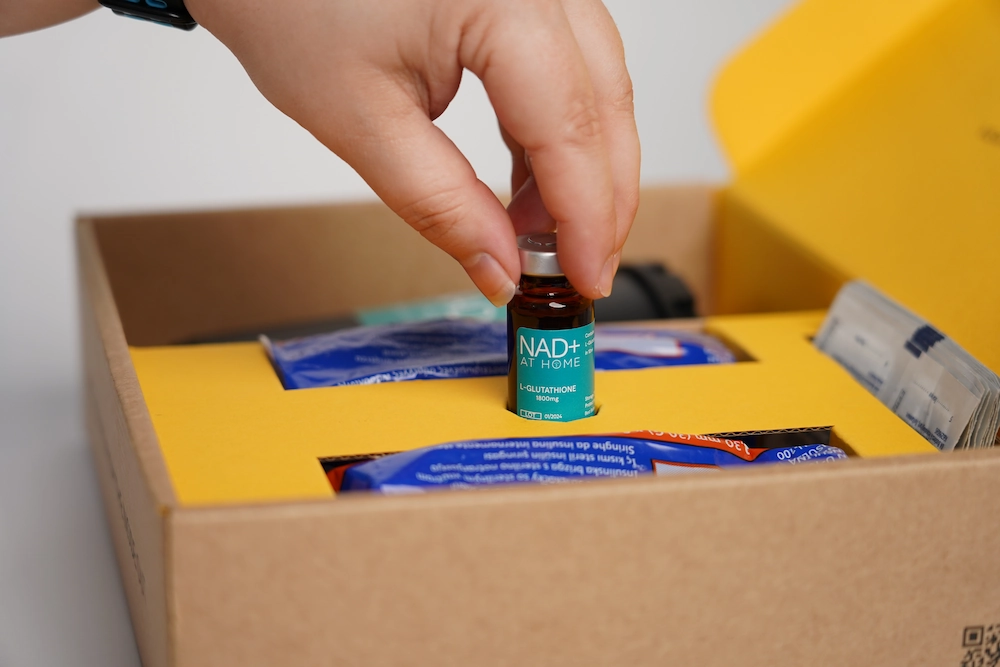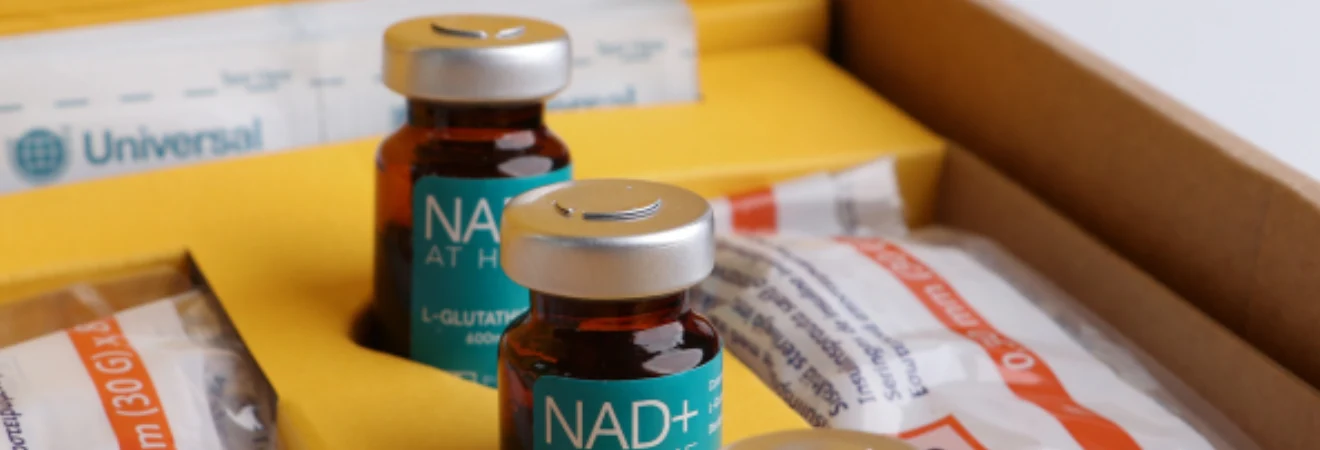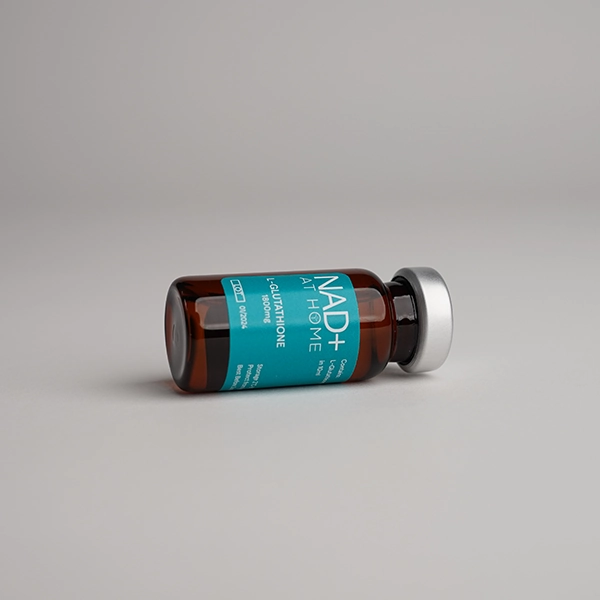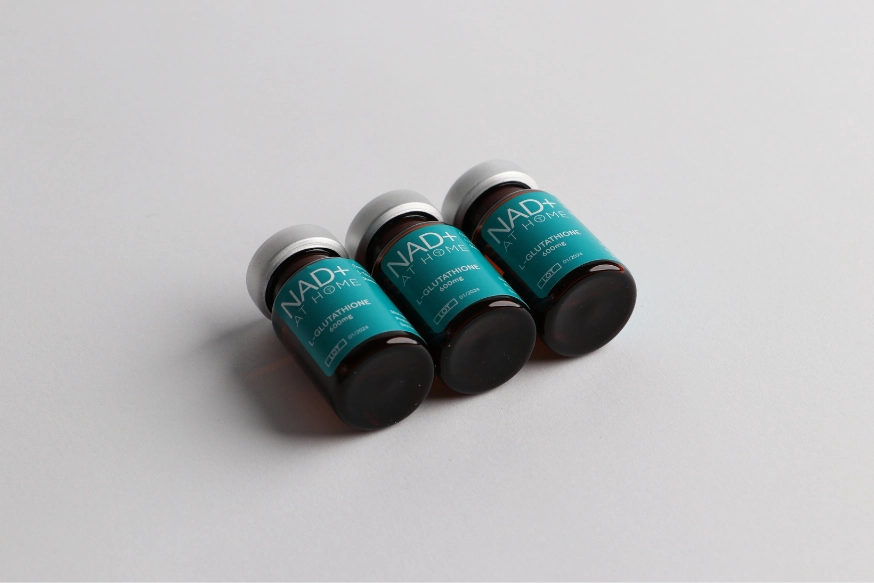You might have heard of glutathione and its role as a ‘master antioxidant’. This antioxidant molecule is known to have a number of key roles in health and well-being, but what exactly is glutathione and why are more and more people seeking to increase it?
Here we will examine this important antioxidant and look at how to boost glutathione by natural means and advanced therapies.
What Is Glutathione & Why Is It Important?
Glutathione is a tripeptide antioxidant. It is composed of three amino acids: glutamine, glycine, and cysteine. It plays a pivotal role in a number of critical physiological processes including maintenance of redox balance, reduction of oxidative stress, enhancement of metabolic detoxification, and regulation of immune system function.
In simpler terms, glutathione plays an important role in many areas of health and well-being, including:
- – Helps detox by binding to toxins and heavy metals for easier elimination.
- – Providing immune system support. Glutathione can help regulate white blood cell activity, boost immune function and protect against illness.
- – Improving antioxidant protection: neutralising free radicals, reducing inflammation and protecting against oxidative damage.
- – Improves overall skin health
- – Protecting our brain function
There is also growing evidence that glutathione can be an important biomarker and treatment target in various chronic, age-related diseases.
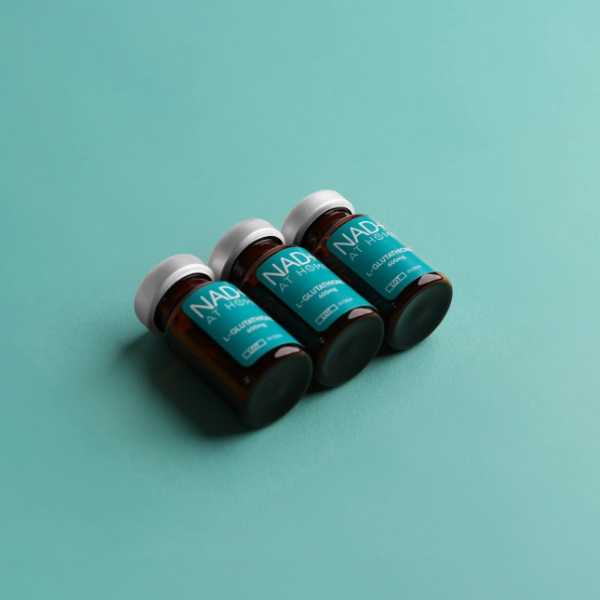
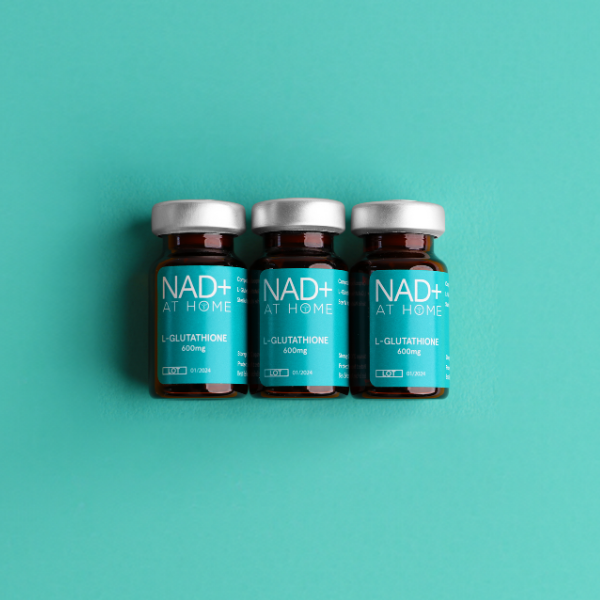
Ways to Boost Glutathione
Glutathione levels can start to decline for a number of reasons. Glutathione does decline naturally as we get older, but there can be other factors, including a poor diet, prolonged stress and long-term exposure to some types of pollution. Prolonged or heavy drinking can also damage the liver, which in turn affects the body’s ability to produce and recycle glutathione
There are a number of ways in which you can boost your glutathione levels, including:
Lifestyle & Diet
Adopting healthy lifestyle and dietary options is a great way to raise glutathione naturally – and there are many other benefits to healthier living too.
- Diet: When thinking about foods for glutathione, you should focus on sulphur and cysteine-rich vegetables, including broccoli, cauliflower, cabbage, spinach, and avocados. Other good foods for glutathione include lean proteins such as whey, sources of Vitamin C and selenium-rich foods like Brazil nuts and fish.
- Sleep: Poor sleep has been associated with glutathione loss so ensuring good bedtime routines and sleep hygiene can be important.
- Exercise: Regular physical activity, including cardio and weight training, may help increase glutathione levels. Moderate exercise is generally better than intense levels, as over-training may sometimes lead to reductions in glutathione.
- Stress reduction: Chronic stress can deplete glutathione. It’s not always possible to avoid stress entirely, but practices like meditation, deep breathing exercises and yoga can help lower stress hormones.
Nutrients & Supplements
Some supplements that can help boost glutathione levels include:
- NAC – NAC (N-acetylcysteine) is a precursor to glutathione
- Vitamin C – Vitamin C and glutathione have deeply interconnected antioxidant functions and are mutually essential to each other.
- Selenium – Selenium is a cofactor for the production of glutathione. It is present in various types of food but can also be taken as a supplement.
- Alpha-lipoic acid – This is an antioxidant made naturally in the body and is known to help regenerate glutathione.
Advanced Therapies
Advanced therapies for boosting glutathione levels include:
- NAD support for glutathione recycling – NAD+ is an important molecule involved in many of the processes related to cellular health. It can also play a role in the recycling and action of glutathione in the body.
- Glutathione injections – Glutathione injections can provide a fast and precise boost to your glutathione levels. At-home glutathione injection kits offer a more convenient option than glutathione IV drips, which have been popular for a while.
Role of NAD in Glutathione Cycle
NAD and glutathione are very different molecules, but both have key roles to play in overall well-being, and they interact in the body in different ways.
NAD, or nicotinamide adenine dinucleotide, is an essential coenzyme found in all living cells. It plays a critical role in energy production, DNA repair, and cellular regulation. Like glutathione, it decreases with age, and many people use NAD+ supplements for a range of potential benefits.
These can include supporting cellular energy production and overall metabolic function, providing certain anti-ageing effects (including premature skin ageing), and supporting brain health and cognitive function.
The body can also recycle glutathione through a process known as the glutathione redox cycle. The interactions between glutathione and NAD are complex, but essentially, a related coenzyme called NADPH is a vital cofactor in this process.
It’s also worth noting that NAD and glutathione can work in complementary ways in boosting health and wellbeing, as they target different aspects of cellular function.
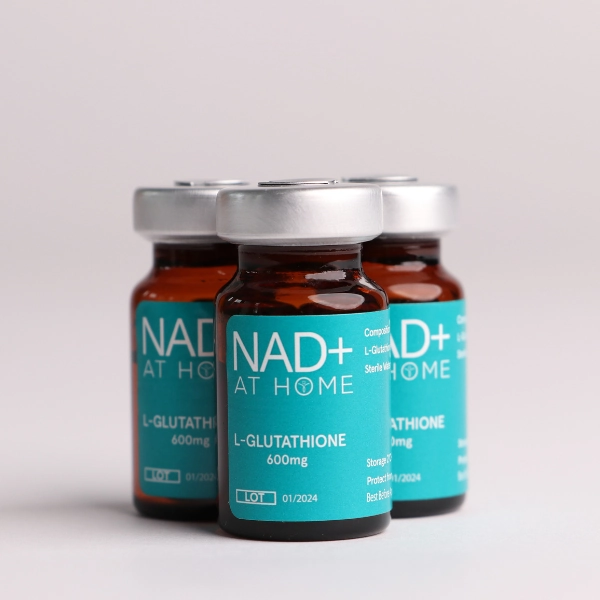
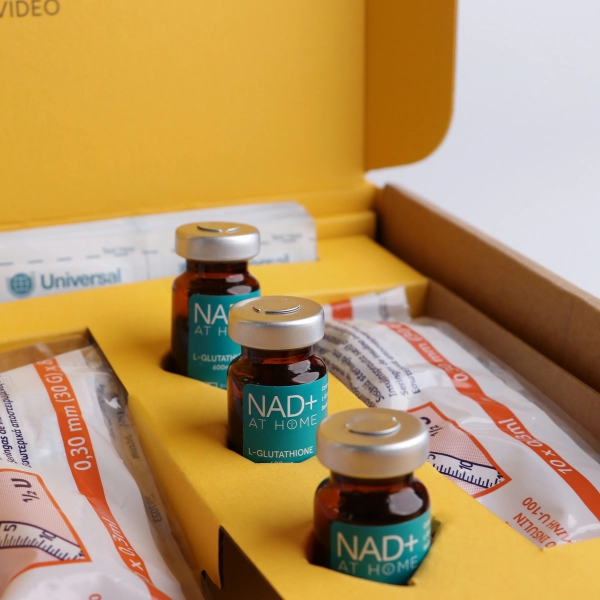
When Advanced Support May Help
Our bodies produce glutathione naturally and, as outlined above, there are ways of boosting glutathione levels naturally, through lifestyle measures such as diet, exercise, improved sleep and stress reduction techniques.
For some people, though, this may not be enough, and the targeted boost provided by advanced therapy such as NAD+ support or glutathione injections may be a better option.
Some possible scenarios where this may be the case could include if you are or have been experiencing high or chronic stress, or have a high burden of toxins in your body. Some people might also be looking to boost their glutathione levels to aid overall well-being, detoxify the body, and boost the immune system.
If you want to know more about L-Glutathione supplements and how they could improve your own health and well-being, explore our supplements or contact us today for more information.
Related Blogs
Check out our latest articles on L-Glutathione.
